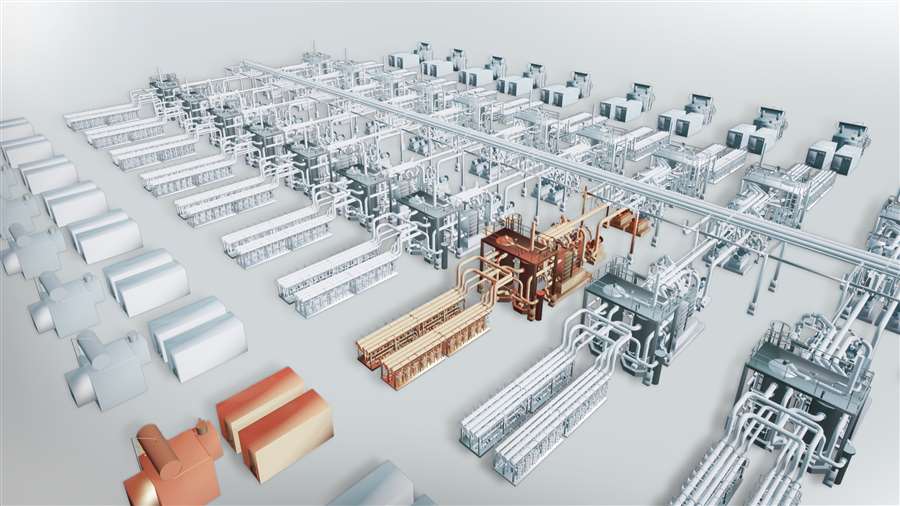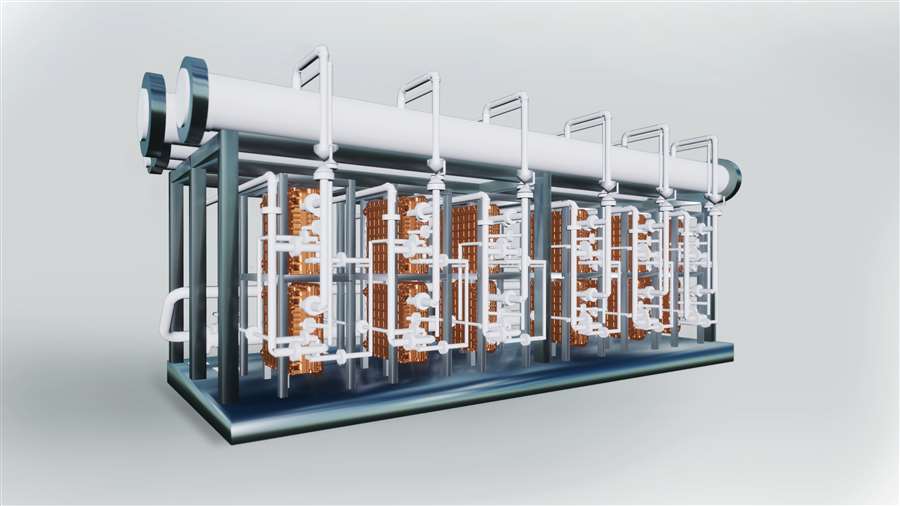
Japanese companies Toyota and Chiyoda will jointly develop a large-scale electrolysis system and construct a strategic partnership. The two companies have signed a basic agreement on cooperation, with a goal of contributing to achieving government targets for the introduction of electrolysis equipment in Japan and overseas as part of the Basic Strategy on Hydrogen formulated by the government.
Chiyoda is a global engineering company that is specialized in oil and gas midstream for gas processing and LNG, downstream refinery and petrochemicals facilities design and construction.
Recently, Chiyoda Corporation signed a joint venture agreement with Kawasaki Heavy Industries, Toyo Engineering Corporation, and JGC Corporation to enhance the front-end engineering design (FEED) execution for a liquefied hydrogen supply chain in development by Japan Suiso Energy (JSE).
The Japanese government’s targets for the introduction of electrolysis equipment are set at about 10% (approx. 15 gigawatt, or GW) of the share of Japan-based companies (including parts manufacturers) within the 134 GW forecast for introduction globally by 2030.
The production and mass production technologies for electrolysis cell stacks using the fuel cell technology held by Toyota and the processing plant design technologies and construction technologies held by Chiyoda will be brought together to develop a large-scale electrolysis system that Toyota said can be competitive. This is expected to allow adaptation to the rapidly expanding hydrogen production markets inside and outside Japan.

Electrolysis equipment: An integrated water electrolysis stack group produced by Toyota. (Illustration: Toyota)
Specifically, Toyota said the project will develop an electrolysis system with high hydrogen production efficiency while being the world’s smallest in size.
To be able to respond to the various needs of customers, such as the amount of hydrogen used or limitations on plant floor area, 5 MW-class equipment will be used as the basic unit for development, and will be combined to create a standard package, allowing the construction of large-scale electrolysis systems.
Toyota said the merits of this equipment include the fact that it only takes up about half the floor area of conventional equipment and offers ease of maintenance while allowing easier shipping, shortened on-site construction times, and lower civil engineering and construction costs.
Toyota’s industrial product expertise and Chiyoda’s experience with plant engineering will be combined and optimized, which Toyota said will allow for benefits such as lower costs, increased production efficiency and more stable quality for the systems required to produce green hydrogen.
Toyota said it will continue to work on “Producing Happiness for All” with the aim of achieving a hydrogen-based society through a multi-pathway approach in the value chain of “Produce / Transport / Store / Use.”
With the agreement on cooperation, the introduction of an electrolysis system in Hydrogen Park at the Toyota Honsha Plant in Japan is expected in 2025. It will reportedly be expanded in the future to the 10 MW class and used for verification and development.
Source: powerprogress.com
